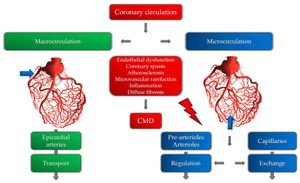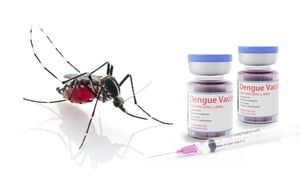The study of homemade manure-based teas (HMT) is proving to be more than just agricultural folklore—it is shedding light on the remarkable interplay between organic waste and sustainable farming practices. Conducted by researchers at the University of Djilali Bounaama, this investigation focuses on the oxygen and hydrobiological profiles of three types of manure: bovine, ovine, and poultry.
Traditionally produced by immersing manure in water, these teas are commonly utilized across North Africa to promote healthier crops without relying heavily on chemical fertilizers. Yet, the scientific properties of these homemade solutions have remained largely unexplored—until now. This study evaluates how these teas, when left to sit for seven days, transition quickly from hypoxic to anoxic conditions, prompting both environmental concerns and agricultural opportunities.
The research, conducted from January to March 2020, measured several parameters over seven days, observing significant drops in oxygen levels shortly after the teas were prepared. Variations among teas made from different animals underscored the distinct characteristics of each type, with poultry manure tea (HMTp) exhibiting the most rapid shift to anaerobic conditions. This decline directly impacted its ability to promote microbial activity—a key factor for growing healthy crops.
Oxygen levels fell drastically—less than 0.5 mg/l of dissolved oxygen was recorded by the second day for HMTp, contrasting sharply with control solutions, which maintained higher oxygen levels. This rapid depletion has serious ramifications: it not only affects nutrient availability but also contributes to greenhouse gas emissions through processes such as denitrification.
According to the authors of the article, "The rapid progression to anaerobic conditions highlights how manure type and incubation duration shape oxygen consumption, microbial activity, and nutrient solubility." Measurements showed HMTp had elevated nitrogen levels, making it particularly beneficial for crops with high nitrogen needs. Yet, the shift to anaerobic conditions could potentially lead to nitrogen loss via gas emissions, diminishing the efficacy of this organic fertilizer.
The necessary steps to optimize the use of HMT included reducing the incubation period or promoting aeration techniques during preparation—both could help to stabilize nitrogen within these teas. The authors suggest, "Reducing the incubation period to four days may help curb nitrogen volatilization, preserving more bioavailable nitrogen." Strategies like these are not just significant for crop yields but also for reducing negative environmental impacts.
The study concluded with the implication of HMT as more than just organic waste. It has immense potential as bioactive fertilizers if prepared correctly, combining old agricultural practices with scientific rigor. The research affirms, "To improve nutrient management, future research should quantify nitrogen balance in HMT, identifying loss pathways and refining retention strategies." Such advancements could lead to more efficient agricultural practices, promoting sustainability and environmental health across farming systems.
While the potential of homemade manure teas as fertilizers is supported by the study, the depth of microbial species involved and their roles within this ecosystem remain to be fully explored. The findings lay substantial groundwork for improving the production techniques of HMT, steering the agricultural sector toward practices grounded in sustainability and ecological balance.



